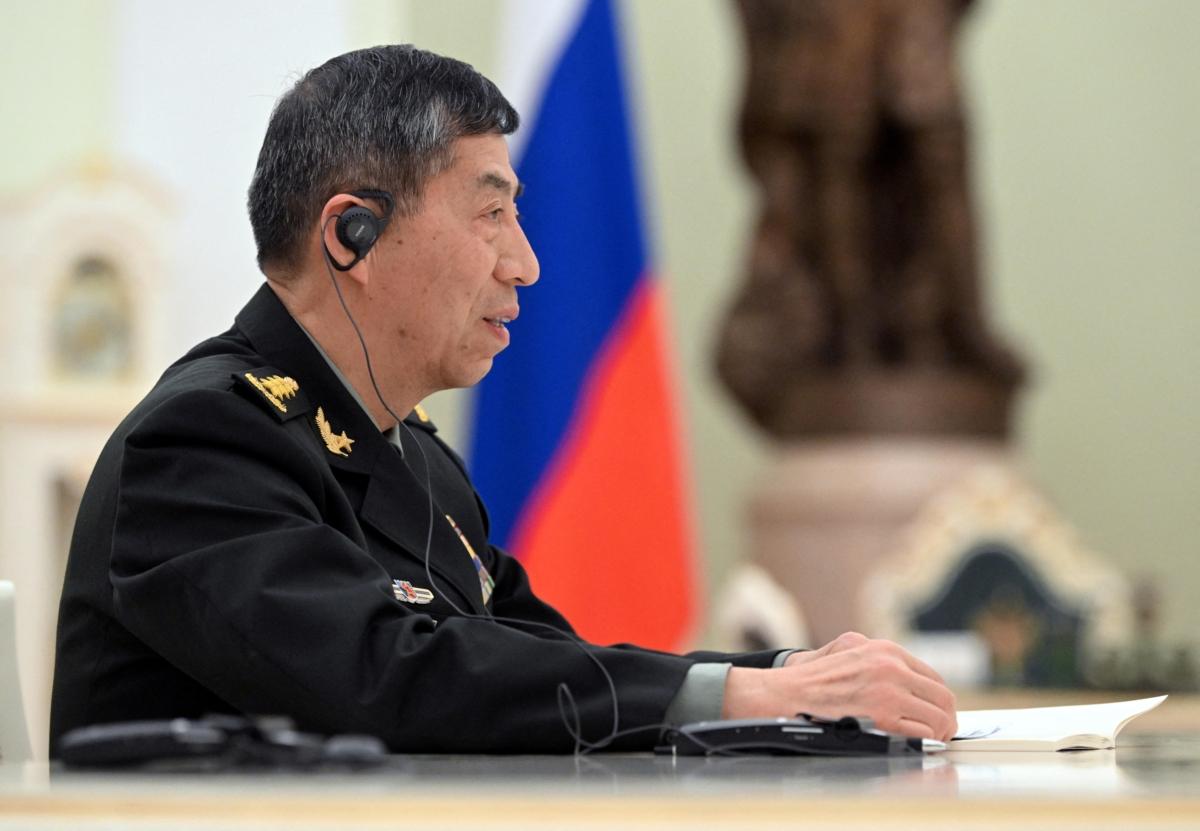News Analysis
Amidst policy dilemmas, communist leader Xi Jinping may have joined China’s “lying flat” trend, according to experts who cite signs in Chinese economic policies, propaganda coverage, and military personnel changes after a major party conference in mid-July.
“Lying flat,” or “tang ping” in Chinese slang, is an online buzzword that emerged in China in 2021. It refers to a passive attitude toward addressing life and work challenges.
Shi Shan, a China expert and an Epoch Times contributor, said the opacity of Chinese politics makes watching signs in power dynamics important indicators of China’s future direction.
“We have observed that the authoritarian regime functions on a different track than in the past five years,” he told The Epoch Times. “Changes may be happening in the CCP’s political structure.”
Meanwhile, China’s State Council stepped up to lead the Party’s economic agenda.

A complex of unfinished apartment buildings in Xinzheng City in central Henan Province, China, on June 20, 2023. Pedro Pardo/AFP via Getty Images
Misalignment Between State Council and Xi’s Economic Policies
The State Council is the executive body of administrative powers headed by the Chinese Premier. Under the CCP, the Party always trumps relevant government bodies, which are supposed to follow the Party’s directive.
However, the State Council moved contrary to the Chinese leader’s previous policies.
On Aug. 3, the CCP’s State Council announced 20 specific measures to boost private consumption in China’s service sectors. These measures are similar to those released a year ago. However, the previous version didn’t mention sectors such as education and gaming, two sectors Xi previously made a priority.
Shi said that the policy change came across as a “correction” of Xi’s policies and, therefore, “definitely undermines Xi’s authority within the CCP.”
“Xi cannot tell everyone that his economic policies have failed. He has to hide behind others and let them make the adjustments,” Shi said. “That means that Xi is lying flat.”
Less Propaganda Coverage for Xi
Xi taking a back seat is also shown in CCP’s propaganda, where he has had less exposure.
On July 15, the first day of the third plenum, the special feature “Xi Jinping, the Reformer” was removed from CCP-controlled media platforms in China.
The CCP’s main mouthpiece, People’s Daily, has only featured the Chinese leader once in a few days since the conclusion of the third plenary session. Before that, the newspaper featured Xi daily on its front page.

Chinese Defense Minister Li Shangfu attends a meeting with Russian President Vladimir Putin and Defense Minister Sergei Shoigu in Moscow on April 16, 2023. Sputnik/Pavel Bednyakov/Pool via Reuters
Major Military Personnel Reshuffle
The CCP uses economic growth and regime propaganda to create a mandate and false widespread consensus for its ruling. To stay in power, the party leader also controls China’s People’s Liberation Army. Yet, Xi also seems to be struggling on this front.
Tang Jingyuan, a China affairs commentator, told The Epoch Times, “These signs suggest that the failure of Xi’s rule has led others within the Party to question and even challenge his authority to some extent.”
Such high-level personnel change mirrored what former Chinese dictator Mao Zedong did in his final years. Fearing that military commanders of various regions would form local power bases and potentially stage coups, Mao started periodically rotating military commanders to prevent any single individual or group from gaining too much power.
“To stabilize his power and prevent a coup, Xi has had to change his commanders in key military regions, just as Mao Zedong did,” said Tang.

People play cards at a local park in Beijing on Apr. 18, 2024. Kevin Frayer/Getty Images
Local CCP Officials ‘Lying Flat’
Within the CCP’s hierarchy, Xi may not be the only person “lying flat.” The trend started from the regime’s local government officials.
After “lying flat” went viral in China as a meme, a county in southeastern China issued “Lying Flat” awards to three local government agencies in 2022 to criticize their inaction in governing.
In the past three months, some local governmental officials have taken action differently. Many took to social media to openly report abuse and unfair treatment by their superiors.
Li Jun said the open criticism and reporting reflected local officials’ loss of faith in the CCP’s governance.
Shi sees a bigger problem.
“Politically, when senior leaders are ‘lying flat,’ the ramifications are severe,” he said. “Historically, at the end of Chinese dynasties, when senior ministers and the Emperor decided to abstain from their powers and duties and to “lie flat,” the collapse of their rule accelerated significantly.”
The last two emperors in China’s late Qing Dynasty were dominated by other Imperial family members and played a passive role in the power struggles in the Forbidden City.
The “lying flat” trend has trickled down to local government agencies to the point that state employees time spent playing poker games has drawn scrutiny from the regime’s media.
Shi said that this was partly driven by local officials seeing that Xi has “lain flat.” However, according to Shi, they are also cautiously watching because they don’t know when Xi will stand up again, just like Mao, who launched the Cultural Revolution to regain power after “lying flat” in a similar style for a few years.
Lynn Xu contributed to this article.
Source link








































Add comment